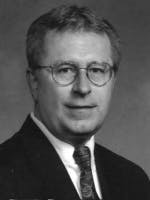A Broken Promise to Our Children
By Maria Perno Goldie, RDH, MS
As we enter Oral Cancer Awareness Month, we must keep in mind the role of tobacco in oral cancer. In November 2011, a report was issued, and support for the report was provided by a grant from the Robert Wood Johnson Foundation. A Broken Promise to Our Children: The 1998 State Tobacco Settlement Thirteen Years Later: A Report on the States’ Allocation of the Tobacco Settlement Dollars. (1) There is an Executive Summary and a state-by-state status report in the 135-page document.
As we enter Oral Cancer Awareness Month, we must keep in mind the role of tobacco in oral cancer. In November 2011, a report was issued, and support for the report was provided by a grant from the Robert Wood Johnson Foundation. A Broken Promise to Our Children: The 1998 State Tobacco Settlement Thirteen Years Later: A Report on the States’ Allocation of the Tobacco Settlement Dollars. (1) There is an Executive Summary and a state-by-state status report in the 135-page document.
This past year, the report discovered that despite collecting huge sums in tobacco revenue, the states have slashed funding for tobacco prevention and cessation programs by 12 percent in the past year and by 36 percent over the past four years.(1) Of the $25.6 billion in tobacco revenue they will collect this year, the states will spend only 1.8 percent, $456.7 million, on programs to prevent kids from smoking and help smokers quit. This means the states are spending less than two cents of every dollar in tobacco revenue to fight tobacco use. The evidence is conclusive that tobacco prevention and cessation programs work to reduce smoking, save lives and save money by reducing tobacco-caused health care costs. Every scientific authority that has studied the issue, including the IOM, the President’s Cancer Panel, the National Cancer Institute, the CDC and the U.S. Surgeon General, has concluded that when properly funded, implemented and sustained, these programs reduce smoking among both kids and adults.I asked Steven A. Schroeder, MD, what his thoughts are about the report. Dr. Schroeder graduated with honors from Stanford University and Harvard Medical School, and trained in internal medicine at the Harvard Medical Service of Boston City Hospital and in epidemiology as an EIS Officer of the CDC. He held faculty appointments at Harvard, George Washington, and UCSF. At both George Washington and UCSF, he was the founding medical director of a university-sponsored HMO, and at UCSF he founded its division of general internal medicine.
Between 1990 and 2002 he was President and CEO, the Robert Wood Johnson Foundation. During that time the Foundation made grant expenditures of almost $4 billion in pursuit of its mission of improving the health and health care of all Americans. It developed new programs in substance abuse prevention and treatment, care at the end of life, and health insurance expansion for children, among others.
Dr. Schroeder is Distinguished Professor of Health and Health Care, Division of General Internal Medicine, Department of Medicine, UCSF, where he also heads the Smoking Cessation Leadership Center (SCLC).(2) The Center, funded by the Robert Wood Johnson Foundation and the American Legacy Foundation, works with leaders of more than 80 American health professional organizations and health care institutions to increase the cessation rate for smokers. It has expanded the types of clinician groups that support cessation, developed an alternative cessation message (Ask, Advise, Refer), created new ways to market toll-free telephone quit lines, and engaged the mental health treatment community for the first time. The American Dental Hygienists’ Association (ADHA) received a grant from the SCLC and has a website devoted to tobacco cessation and Ask, Advise, Refer.(3) The SCLC has a toolkit, CE, and numerous resources for professionals to help in the quest to end tobacco use.
Dr. Schroeder has published extensively in the fields of clinical medicine, health care financing and organization, prevention, public health, the work force, and tobacco control. He currently is a member of the editorial board of the New England Journal of Medicine, a director of the James Irvine Foundation, and the Robina Foundation, and chair of the health care Services Board of the Institute of Medicine. He formerly chaired the American Legacy Foundation, was a Council member of the Institute of Medicine, an Overseer of Harvard, and President, the Harvard Medical Alumni Association. He has six honorary doctoral degrees and numerous awards. On the personal side, Dr. Schroeder lives in Tiburon, California, with his wife Sally, a retired schoolteacher. Their two sons are physicians, one a cardiologist and one a pediatrician. Steve and Sally have four grandchildren. I applaud his tireless efforts to make the world a better place to live. I have had the pleasure and the privilege of working with Dr. Schroeder as an Advisory Board Member of the SCLC. He is truly inspirational and lives one very full life!This is what Dr. Schroeder had to say about the report.“A Broken Promise to our Children” is a sad reminder that unless advocates stand up for their causes, political pressures will erode moneys that should be devoted to public health causes, such as tobacco control. The1998 Master Settlement Agreement was supposed to provide funds to keep children from starting to smoke and to help smokers quit. But, as the report illustrates, that promise has eroded in the face of state fiscal crises and powerful pressures from other claimants. We need to do all we can in our states to preserve these funds for the purpose for which they were intended.”Let’s take heed and do what we can to be advocates for tobacco cessation!References
1. www.rwjf.org/files/research/20111140ctfk.pdf.2. smokingcessationleadership.ucsf.edu/.3. www.askadviserefer.org/.
1. www.rwjf.org/files/research/20111140ctfk.pdf.2. smokingcessationleadership.ucsf.edu/.3. www.askadviserefer.org/.
Maria Perno Goldie, RDH, MS
To read previous articles in RDH eVillage FOCUS written by Maria Perno Goldie, go to articles.





